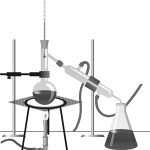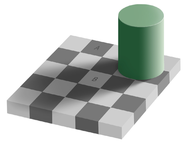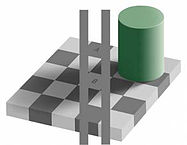 Hear Ye, Hear Ye, the Internet is divisive on some subject. If you have managed to focus on something entirely more important I am referring to the "What Is The Dress Color" debate that you can find on a simple search. The phenomenon at play here is something known as color constancy.
Hear Ye, Hear Ye, the Internet is divisive on some subject. If you have managed to focus on something entirely more important I am referring to the "What Is The Dress Color" debate that you can find on a simple search. The phenomenon at play here is something known as color constancy.
In order to understand constancy, it is important to understand a little bit about color vision. When light hits an object, certain wavelengths of light are reflected off the object. The reflected light then passes through the eye and interacts with special cells on the retina called rods and cones. Of the two, the cones are primarily responsible for the color vision in brighter light situations. Signals from these photoreceptors are then processed in the visual cortex area of the brain.
Color constancy allows for the brain to automatically try and correct the color of an object under differing lighting conditions. So an orange would look the same under natural light as it would under artificial light, as well as in a shadow. This may be an evolutionary shortcut mechanism so the brain does not necessarily have to "remember" every possible permutation of lighting on a known object.
The following famous checkerboard optical illusion was created by Edward H. Adelson:


Although they look like totally different colors, as seen in the second image squares A and B are actually the same shade of gray. The dimming effect of the shadow allows for the brain to perceive that the square is actually lighter than it really is.
Which brings us back to the dress debate. The surrounding colors and the source light can alter the way the colors actually look. The context is ambiguous enough that some people fall into the blue / black camp, while others remain in the white / gold camp. At least this discussion has some interesting science behind it unlike the previous tug of war between vampires and werewolf.